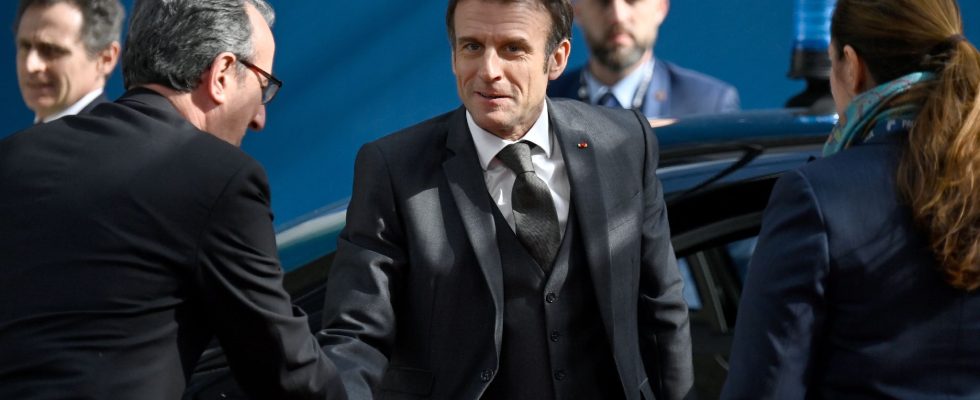Break ! The call for a European regulatory break in terms of environmental legislation launched by Emmanuel Macron on May 11 is being emulated. The Belgian Prime Minister joined him on May 23. On the Spanish side, the same request emanating from the center right, which could wrest power from the socialist government of Pedro Sanchez during the legislative elections of July 23. This voice counts especially as Spain prepares to take over the Presidency of the Council in the second half of this year. The approach of the European elections in June 2024 is undoubtedly not unrelated to this growing consensus as the implementation of the Green Deal reshapes key sectors of the economy of the Old Continent, and in particular the automotive industry. Everyone begins to count their divisions… But there are other types of divisions that explain this desire for a break.
First, intra-European divisions. Germany is in recession, devoid of a credible energy policy: German industry itself says so by voting with its feet. According to the powerful Federation of German Industry, 16% of medium-sized companies are in the process of taking the necessary steps to relocate while 30% say they want to do so. It is nothing less than the famous model of the Mittelstand – the vast network of small and medium-sized enterprises – which is seized up, that is to say the engine of the German economy: 99% of the national entrepreneurial fabric, 60% of the jobs, 52% of total economic output!
These are the companies that are behind the last-minute addition of an exemption to the law banning the sale of combustion engine vehicles in 2035 in favor of those that run exclusively on synthetic fuels. The current blocking, by Paris, of the text on the acceleration of the deployment of renewable energies in order to have the place of nuclear energy recognized therein stems from the same logic: the future of the competitiveness of what remains of industry in France and the possibility of rebuilding one.
A triple inconsistency
In reality, is it really the tempo of European environmental reforms that is in question? Criticizing the pace of implementation of the Green Pact is eminently paradoxical in view of the slowness of the decision-making process and the deployment of European policies, which is highlighted more than ever by the rapid execution of the American Inflation Reduction Act, which is already producing significant effects. The underlying problem is much deeper because it concerns the very coherence of European policy. Is the energy policy of European countries consistent with the policy of electrification of mobility and heating (heat pumps)? When reading RTE’s recent scenarios on electricity demand, the first word that comes to mind is “bet”. Some will argue that the prices of electric cars are too high, which to date prevent their massification: it is not to see the tsunami that is unfolding concerning the exports of Chinese electric vehicles. The democratization of electric mobility in Europe will be enabled by China.
Hence a second inconsistency in European green policy: is the decarbonisation of the economy at a lower cost possible without China? The answer is no. The Dutch Prime Minister said it bluntly. However, recognizing the Euro-Chinese coupling reveals a third inconsistency, which is not the least: is it compatible with the Euro-Atlantic alliance, more than ever necessary to counter the Russian threat?
The answer is given by Jake Sullivan, national security adviser to Joe Biden, in a fundamental speech, delivered on April 27, to explain the new American international doctrine, which applies both economically and strategically: “The United States intend to use a new strategic industrial policy to simultaneously revitalize the American middle class and American democracy, while fighting climate change and establishing a sustainable technological lead over China. […] We will shamelessly pursue our industrial strategy at home, but we are unequivocally committed not to leave our friends behind. We want them to join us.” In other words, whoever loves me follows me. The decarbonisation of the European economy therefore depends today on China; but the survival of its industry, of its alignment with the new consensus of Washington: this should fuel a great European campaign!
* Cécile Maisonneuve is founder of Decysive and advisor to the Energy and Climate Center of Ifri
